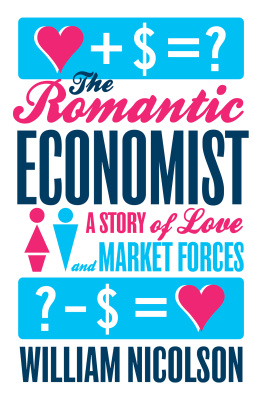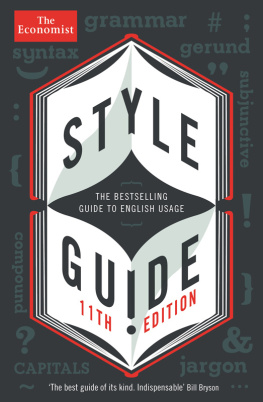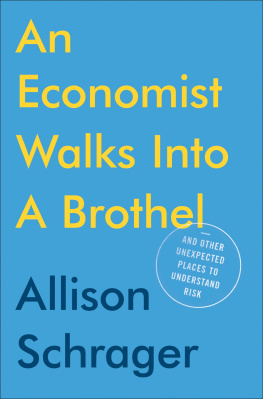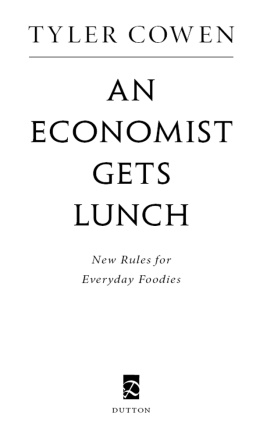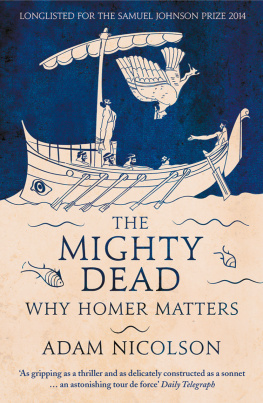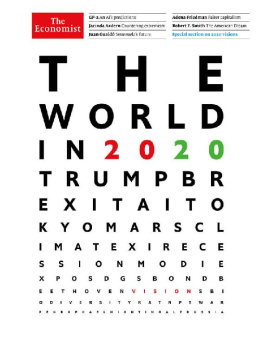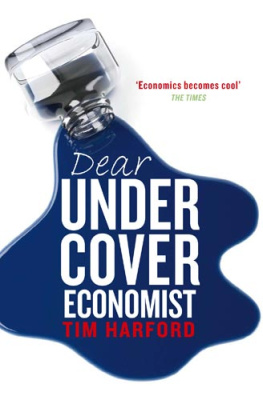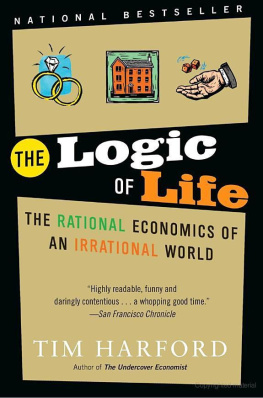Dear American Reader,
Hopefully this shouldnt come as too much of a surprise by now, but theres one thing you need to know before you read any further: Im English. Or, more precisely, Im an English man . Theres no need to be alarmed. Im just like you. Nonetheless, my publisher over here thought it would be a good idea to introduce myself to the American reader just in case you guys dont, you know, get me.
So heres what you should get about me, and English guys in general, before flipping the page to Chapter 1. In spite of whatever English Casanovas you might have seen at the movies (the Bonds, Firths, and Grants etc.), English guys (of which I am a case in point) can be real idiots when it comes to girls. Not jerks, just plain stupid. We may, as you might put it, have cute accents, but thats about as far as it goes when it comes to anything verging on a natural ability to attract members of the fairer sex. Were just as useless at making a move, committing to a relationship, or meeting the parents as just about any other guy youve ever come across.
What youre about to read may not therefore sit very well with any image you may already have of the typical English guy. I mumble, stumble and fumble my way through my love life, with sharp economic analysis only occasionally producing moments of clarity. Nonetheless, I really hope that you enjoy it, and you learn something about love or economics (hopefully both). Writing it, I certainly did.
Yours ever,
William
OK, not really, but at least we speak the same language (sort of).

Marble Arch Press
1230 Avenue of the Americas
New York, NY 10020
www.SimonandSchuster.com
Copyright 2013 by William Nicolson
Originally published in Great Britain in 2013 by Short Books.
All rights reserved, including the right to reproduce this book or portions thereof in any form whatsoever. For information, address Atria Books Subsidiary Rights Department, 1230 Avenue of the Americas, New York, NY 10020.
First Marble Arch Press trade paperback edition January 2014
Marble Arch Press is a publishing collaboration between Short Books, UK, and Atria Books, US.
Marble Arch Press and colophon are trademarks of Short Books.
Illustrations Andrew Smith 2013
Cover design: Lucy Stephens
Author photo: Ben French
ISBN 978-1-4767-3041-7
ISBN 978-1-4767-3042-4 (ebook)
For my parents
Contents
Table of Figures
Chapter 1
Introduction
I know that this sounds like a clich, but really, its not you...
I stopped listening at this point. I knew what was coming. In my mind I had already dumped myself several times before Lizzie finally got round to doing it. I stared down into my coffee, which had been slowly forming a crust of dried froth, and let the rest come.
Youve been absolutely wonderful. I just dont think I am ready for a serious relationship at the moment.
She was clever, fun, talented and unbearably beautiful. My mother had already said she wanted me to marry her, but I had lost her in a personal best time of six weeks.
I returned home in a downtrodden, yet contemplative mood. I didnt get it. I couldnt see where I had gone wrong. I had been nothing, or so I thought, but my nicest, funniest and most caring self with her. What seemed to have gone down a treat in the early days quite simply stopped working, practically overnight, around the third week. Suddenly calls went unreturned, kisses were quickly retracted, and eye contact was avoided. If I had wanted the signs to be any clearer they would have had to be written in letters ten feet high. The end was inevitable.
Perhaps you were too nice, my friend, Flora, playing the shoulder to cry on, suggested to me a couple of days later.
Dont be ridiculous.
Youve got to play the game play hard to get.
The words hard to get rang in my ears they reminded me of something. Then it clicked. You mean, like, restrict my supply ?
She rolled her eyes, a reaction that I was used to getting whenever I translated something, quite unnecessarily, into economic language.
I guess you could put it like that. But the important thing is that if you give them too much early on they will take you for granted and wont find you attractive.
I finally understood. So, you are saying that I should restrict my supply to increase my value ?
Oh William, please grow up.
A few days passed. The initial shock began to wear off. Perhaps we werent right for each other anyway. I was probably more in love with the idea of being in love with her than actually in love. Anyhow, I shouldnt really have expected it to end in any other way. I had been at university for a year, and I still hadnt managed to get myself a girlfriend (not one that lasted more than six weeks anyway). I had gone on plenty of dates some more successful than others but nothing of any substance had materialised. Whenever I did find a girl I liked, I let my emotions build up too much steam, and she would soon be running for the hills. And yet, in the economics seminar room, I had always prided myself on my ability to think rationally, and get myself out of even the most complex of problems, however many variables or lines of working were involved. Things had to change.
I got thinking about the post-dumping conversation Id had with Flora. The idea that I had over-supplied myself seemed to have a lot of truth in it: people dont want to go out with someone who just about anyone could get with. Youve got to limit your supply, or play hard to get, so that when they do eventually get you it makes them feel special. That simple lesson got me thinking about what else I might be able to learn from applying the economics that I was studying during the day to what I was doing so badly in my spare time: trying to find a girlfriend.
The clear-cut rational world of economics, I thought, must surely be the perfect coolant for my overheated emotions. No longer was I to be the hapless romantic, desperately in search of love, wandering aimlessly from one girl to the next, lost in the mysterious world of women. I was to become an investor in the market for relationships, and use the rational, incisive tools of economics to try to get me a whopping return. Whether this would put me on the path towards enlightenment and eternal happiness, or the fast track to a life plagued by loneliness and dejection I couldnt say. But one thing was for sure: I would become the Romantic Economist .
Chapter 2
About this Book:
Assumptions and Qualifications
I first realised that I needed to introduce the book in this way after I decided to share a few of my ideas with a group of girls at a flat party. I was telling them about supply and demand, or playing hard to get, and it was going pretty well.
You just need to restrict your supply to increase your price, I told them, as they gazed at me as if I was some kind of dating sage.
Amazing, thats so true. Tell us more, Will.
I told them a bit about signalling preferences, bargaining power and inelastic demand. They liked it. Perhaps my idea for a book wasnt so bad after all. Then I went for gold: the efficient market hypothesis.
Basically, if we assume the market for relationships is perfectly informed, then if youre single, it follows that youre probably single for a reason.
The looks of awe and admiration I had been basking in for the last fifteen minutes vanished, to be replaced by mingled looks of fury and pity. Evidently all these girls were single, and I had just effectively told them this was because there was something fundamentally wrong with them. I quickly backtracked.
Next page
